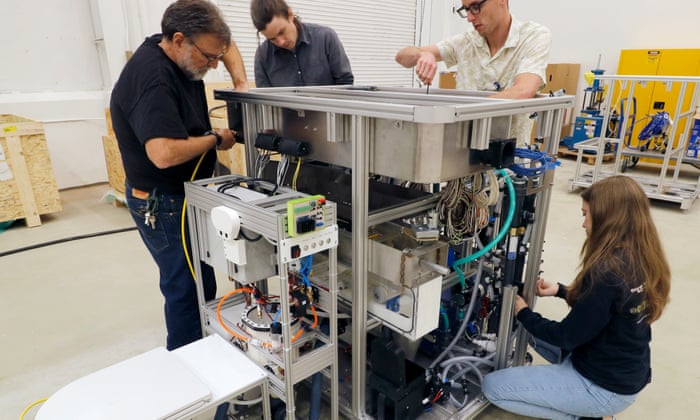‘Sanitation isn’t just an issue for developing countries’: how a company is reinventing the looUnlike conventional toilets that rely on pl...
Published on by Water Network Research, Official research team of The Water Network

Unlike conventional toilets that rely on plumbing, or an on-site septic tank or cesspool, the G2RT operates independently, with its own self-contained processing unit, which can treat waste directly at the source. The unit purifies liquids and recycles them for flushing, while solid waste is subjected to high heat and pressure, killing pathogens and leaving dry, odour-free ash that can be safely composted. By neutralising the waste, the process prevents the risks of leaks and discharges that can pollute and contaminate water systems.
“The G2RT is all about on-site sanitation and bringing the treatment as close to the user as possible,” says McCusker. “By cutting out the need to connect up to a sewage or water system, we are making this basic level of sanitation more affordable and accessible, and reducing the need for authorities to undertake expensive infrastructure projects.”
The G2RT has been tested in laboratories across the US and Europe, and successfully trialled in homes in South Africa and India. Engineers are now fine-tuning the unit to improve the usability and lifespan, while reducing its overall size, minimising maintenance needs and working to bring down costs so that the toilet is affordable for consumers. They are also looking at the possibility of running the new generation of loos on solar power. As development continues, the next prototype may go into testing within the next year, with a working product predicted to be on the market within three to five years.
Hand of man on solar panel on rooftop for service, inspection and sustainable business.
Lixil is also looking at the possibility of running the new generation loos on solar power.
However, to achieve the commercialisation of the product, other challenges need to be addressed. Technology companies are usually hampered by the fact that most countries implement their own laws and regulations around waste treatment, meaning there are no uniform, internationally agreed rules. In the US, for instance, on-site waste treatment regulations are set at the state and local level, which means that companies must pilot and prove their systems multiple times, which can be costly and time-consuming.
To enable the commercialisation of the G2RT and other potential treatment solutions, it is important for Lixil and industry partners to work with regulators to overcome barriers to distribution and installation.
Attached link
https://www.theguardian.com/a-better-home-for-everyone-everywhere/2025/jan/06/sanitation-isnt-just-an-issue-for-developing-countries-how-a-company-is-reinventing-the-looTaxonomy
- Composting Toilet
- Sustainable Sanitation
- Water & Sanitation
- Portable Toilets & Waste Management